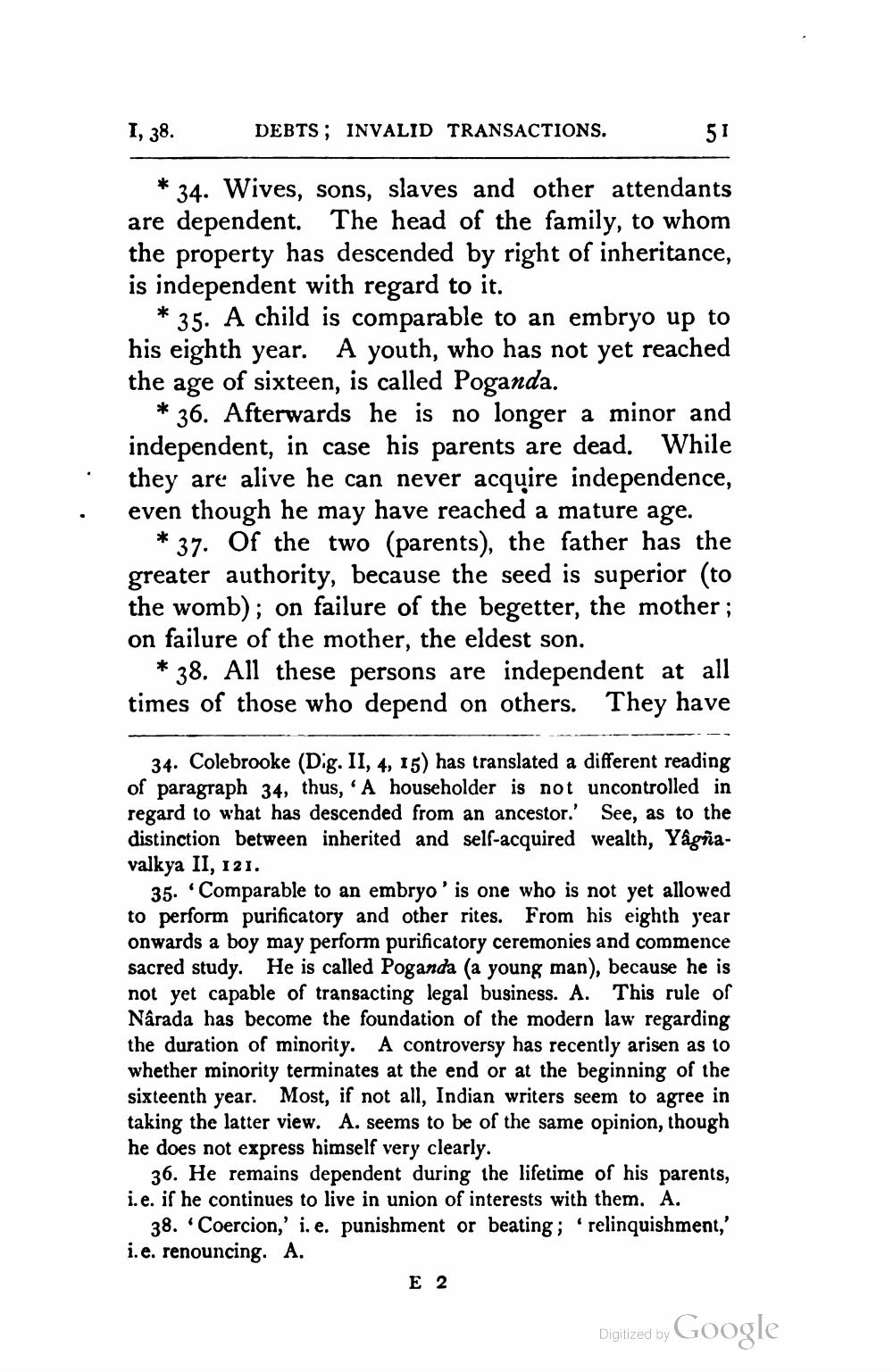________________
I, 38.
DEBTS; INVALID TRANSACTIONS.
51
* 34. Wives, sons, slaves and other attendants are dependent. The head of the family, to whom the property has descended by right of inheritance, is independent with regard to it.
* 35. A child is comparable to an embryo up to his eighth year. A youth, who has not yet reached the age of sixteen, is called Poganda.
* 36. Afterwards he is no longer a minor and independent, in case his parents are dead. While they are alive he can never acquire independence, even though he may have reached a mature age.
*37. Of the two (parents), the father has the greater authority, because the seed is superior (to the womb); on failure of the begetter, the mother; on failure of the mother, the eldest son.
* 38. All these persons are independent at all times of those who depend on others. They have
-- - -- 34. Colebrooke (Dig. II, 4, 15) has translated a different reading of paragraph 34, thus, 'A householder is not uncontrolled in regard to what has descended from an ancestor. See, as to the distinction between inherited and self-acquired wealth, Yagnavalkya II, 121.
35. Comparable to an embryo' is one who is not yet allowed to perform purificatory and other rites. From his eighth year onwards a boy may perform purificatory ceremonies and commence sacred study. He is called Poganda (a young man), because he is not yet capable of transacting legal business. A. This rule of Nárada has become the foundation of the modern law regarding the duration of minority. A controversy has recently arisen as 10 whether minority terminates at the end or at the beginning of the sixteenth year. Most, if not all, Indian writers seem to agree in taking the latter view. A. seems to be of the same opinion, though he does not express himself very clearly.
36. He remains dependent during the lifetime of his parents, i.e. if he continues to live in union of interests with them. A.
38. Coercion,' i.e. punishment or beating ; relinquishment,' i.e. renouncing. A.
E 2
Digitized by Google




